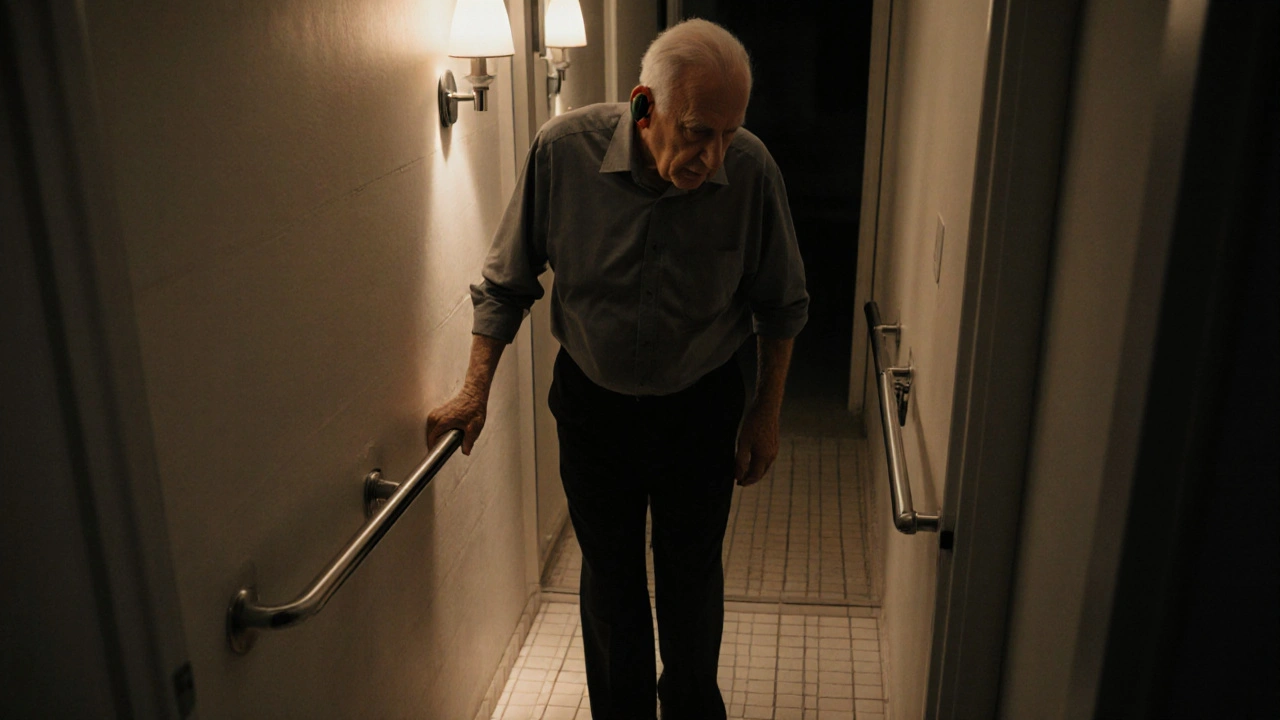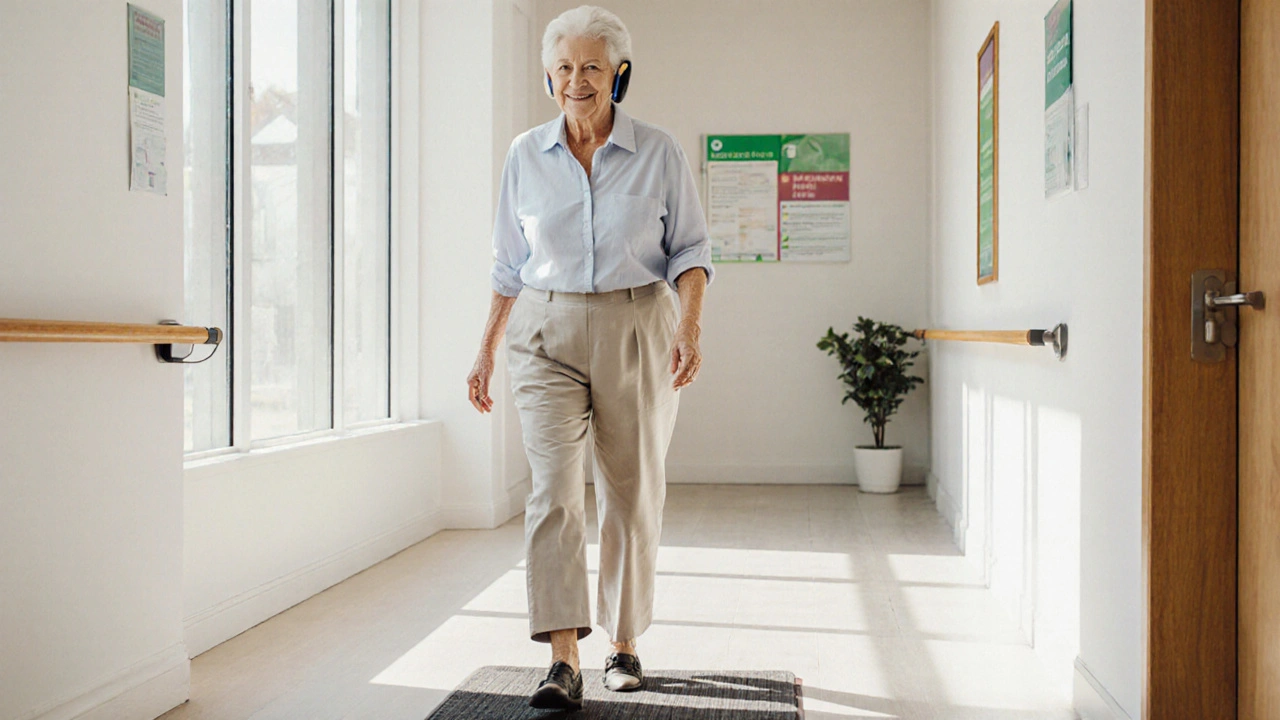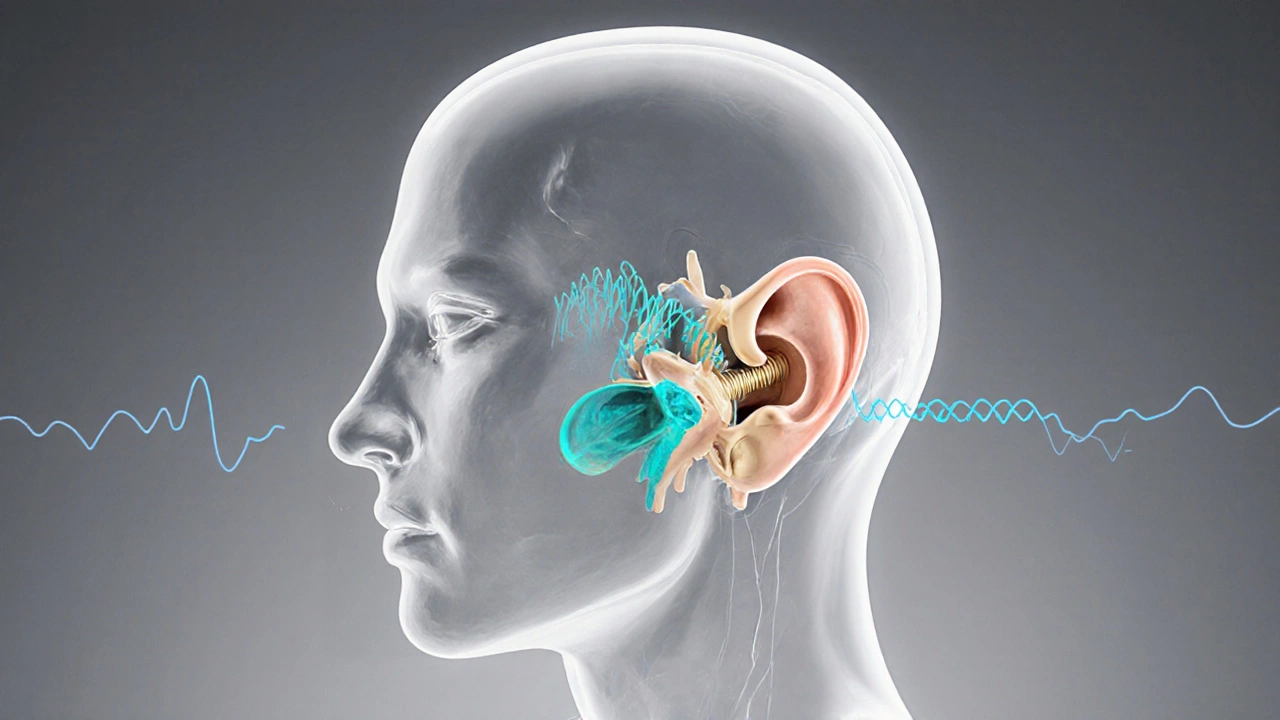Hearing & Balance Fall Risk Calculator
Personalized Fall Risk Assessment
This calculator estimates your fall risk based on hearing loss severity, age, and balance symptoms. Results are based on research showing hearing loss increases fall risk by 50%.
Ages 50+ show increased vulnerability
Mild loss: Difficulty hearing soft sounds
Profound: Near-total loss of hearing
Select all that apply
Ever wonder why a ringing ear sometimes feels like the world is spinning? The link between hearing difficulty and balance isn’t a coincidence - both rely on the same tiny structures deep inside your skull. Understanding that connection can help you spot warning signs early and keep falls at bay.
Key Takeaways
- The inner ear houses both the hearing organ and the balance organ, so problems in one often affect the other.
- Age‑related hearing loss (presbycusis) and specific disorders like Meniere’s disease can double your fall risk.
- Simple tests - an audiogram and a vestibular assessment - can reveal hidden balance issues.
- Hearing aids, vestibular rehab, and home‑safety tweaks work best when combined.
- Regular check‑ups with an audiologist or otolaryngologist are essential for anyone noticing changes in hearing or steadiness.
What is Hearing Difficulty?
Hearing difficulty is a condition where the ear cannot detect sounds as clearly as it should. It ranges from mild loss of high‑frequency sounds to profound deafness, often measured with an audiogram. Common causes include aging, noise exposure, infections, and genetic factors. While many think of it as just a communication problem, the ear’s anatomy tells a different story.
Balance Issues Explained
Balance issues refer to the inability to maintain postural stability, leading to unsteady gait, dizziness, or vertigo. They stem from disruptions in the vestibular system, visual input, or proprioceptive feedback. When the vestibular cues misfire, the brain receives conflicting information, and you feel like the floor is moving.

The Inner Ear: Where Hearing Meets Balance
Inner ear is a fluid‑filled cavity located within the temporal bone. It contains both the cochlea for hearing and the vestibular apparatus for balance.
Cochlea is a spiral-shaped organ that converts sound vibrations into electrical signals sent to the brain. Hair cells inside the cochlea bend with each wave, triggering nerve impulses.
Vestibular system includes three semicircular canals and two otolith organs that detect head movement and linear acceleration. Fluid movement within these canals moves tiny crystals, which then stimulate nerve endings.
The semicircular canals are oriented at right angles to each other, allowing detection of rotation in any direction. When they’re damaged or inflamed, you may experience vertigo, which often accompanies hearing loss in certain disorders.
Conditions That Hit Both Hearing and Balance
Several medical conditions affect the cochlea and vestibular organs simultaneously. Below is a quick snapshot to help you recognize patterns.
| Condition | Typical Hearing Loss | Balance Symptom | Most Affected Age Group |
|---|---|---|---|
| Meniere's disease | Fluctuating low‑frequency loss | Spontaneous vertigo episodes | 30‑60 years |
| Benign paroxysmal positional vertigo (BPPV) | Usually none | Brief spinning when head moves | Older adults |
| Presbycusis | Gradual high‑frequency loss | Occasional imbalance | 50+ years |
| Labyrinthitis | Sudden sensorineural loss | Severe vertigo, nausea | All ages (viral trigger) |
Why Age Matters: The Double‑Hit of Presbycusis and Falls
As you age, the hair cells in both the cochlea and vestibular organs naturally degenerate. This process, known as presbycusis when it relates to hearing, often comes with reduced vestibular sensitivity. The result? A person in their 70s with mild hearing loss may also experience subtle swaying, making trips to the bathroom or stairways risky.
Studies from the British Geriatrics Society show that seniors with untreated hearing loss are 1.5 times more likely to fall within a year compared to those with normal hearing. The combination of reduced auditory cues (like footstep sounds) and impaired balance signals creates a perfect storm for accidents.

How Professionals Diagnose the Link
Getting a clear picture starts with two specialists:
- Audiologist - conducts pure‑tone audiometry and speech‑in‑noise tests to map hearing thresholds.
- Otolaryngologist - evaluates the ear, nose, throat, and performs vestibular function tests like the video‑head‑impulse test (vHIT) or caloric testing.
During an audiogram, tones ranging from 250Hz to 8kHz are played in each ear. The lowest volume the patient can hear at each frequency is plotted, revealing the shape of loss.
A vestibular assessment may include the Dix‑Hallpike maneuver (to detect BPPV), balance platform tests, and dynamic visual acuity tests. Combining results highlights whether the issue stems from the cochlea, vestibular organ, or both.
Managing Hearing and Balance Together
Addressing both problems at once yields the best outcomes:
- Hearing aids or cochlear implants amplify sounds, reducing the brain’s reliance on visual cues for spatial orientation.
- Vestibular rehabilitation therapy (VRT) uses eye‑head exercises to retrain the brain’s balance pathways.
- Home safety modifications - install grab bars, ensure good lighting, and keep walkways clear of rugs.
- Medication review - some drugs (like certain antihistamines) can worsen dizziness; discuss alternatives with your GP.
- Regular exercise - TaiChi, yoga, and balance‑focused strength training improve proprioception and reduce fall risk.
When a hearing aid is fitted, many patients report feeling steadier simply because they can hear ambient sounds again (footsteps, traffic), giving the brain extra reference points.
Everyday Tips to Keep Your Balance Sharp
- Check your hearing at least once a year after 50; an early audiogram can spot subtle loss.
- Practice the “10‑step test”: walk 10 steps forward, turn, and return without looking at your feet; note any wobble.
- Stay hydrated - low fluid levels can affect inner‑ear pressure.
- Avoid sudden head movements when you’re dizzy; sit or lie down first.
- Use over‑the‑counter ear protection (earplugs) in noisy environments to slow further damage.
Frequently Asked Questions
Can hearing loss cause vertigo?
Yes. When the cochlea and vestibular organs share the same fluid‑filled space, inflammation or fluid imbalance can trigger both hearing loss and vertigo, especially in conditions like Meniere’s disease.
Why do older adults fall more often if they have hearing trouble?
Reduced auditory cues make it harder to judge distance and speed of moving objects. Combined with age‑related vestibular decline, the brain receives fewer reliable signals, leading to missteps and falls.
Is there a test that checks both hearing and balance at once?
While no single test covers both fully, a comprehensive ear‑clinic visit often includes an audiogram followed by vestibular function tests, giving a complete picture in one appointment.
Do hearing aids improve balance?
Studies show that amplified ambient sounds help the brain re‑calibrate spatial awareness, leading to modest improvements in steadiness, especially in quiet indoor settings.
What lifestyle changes reduce the risk of both hearing loss and balance problems?
Limit exposure to loud noises, stay active with balance‑focused exercises, maintain a healthy weight, manage blood pressure, and get regular ear check‑ups.


Tyler Wolfe
Man, I never connected hearing loss with falling until now. My grandpa kept saying he was fine, but he was always clutching the wall walking to the kitchen. Guess it wasn't just old age.